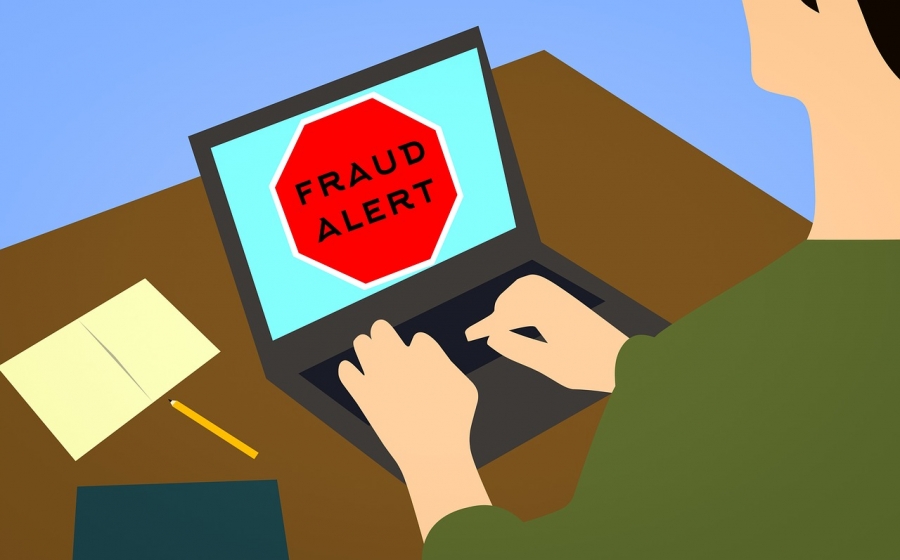Recently the RCMP announced they had arrested and charged a man and a woman in Brampton, Ont. in connection with various phone scams. These involve callers from India posing as RCMP or Canada Revenue Agency officials, threatening to arrest people if they don’t pay non-existent back taxes or fines. In combination with computer tech support scams, the RCMP estimates that since 2014, more than $30 million has been lost.
Even the Canadian Anti-Fraud Centre had its website “spoofed” with fake websites and its phone number “phished” by fraudsters.
A recent survey by Chartered Professional Accountants Canada (CPA Canada) found that 34 per cent of Canadians have experienced at least one type of fraud.
“With more of our daily activities going online, the ability of fraudsters to take advantage of unsuspecting Canadians increases,” says Doretta Thompson, financial literacy leader at CPA Canada. “Devices such as smart locks, home security cameras, laptops and even smart TVs can be infiltrated and compromised with access to the right information.”
Once they have your information, the bad guys may be able to access bank accounts, open new accounts in your name, apply for loans and credit cards, buy things online and even obtain a passport or receive government benefits.
CPA says the No. 1 way to protect yourself is by strengthening your passwords. Create unique passwords for each of your accounts. It’s okay to write down the passwords as long as they are stored in a safe place, or you can use a password manager to create and store them, says CPA Canada.
Screen your calls and texts and don’t pick up if you don’t recognize the number. Don’t reply to a text or click on a link if you are not sure where it’s from. Don’t give out any personal information.
Fraudsters use a variety of methods to steal your identity, not all of it high tech. Some get it from “dumpster diving” to find out personal information.
You should be in the habit of shredding personal documents that include information such as your name and address or other information such as your age or an account number, says CPA Canada. Check your wallet and see if you really need to carry all of those identity documents. Review your bank and credit card statements regularly so you can quickly spot any unusual activity. You should also check your credit score once a year by contacting Equifax or TransUnion Canada.
Haywood Hunt, a private investigator firm in Toronto, says mortgage fraud has risen dramatically in recent years. “The unpleasant truth is that the way a mortgage is designed in Canada makes it easy for fraudsters to cheat the system,” says the firm in a blog. “For instance, the borrower process is too heavily reliant on information and documents provided by the borrower, making it an easy point of entry for the fraudster.”
If someone deliberately provides false information to get a mortgage – such as lying about their income or employment or acting as a “straw buyer” and allowing their name to be used on a mortgage application for a home they are not buying – then they are committing mortgage fraud.
Canada Mortgage and Housing Corp. says you should never accept money, guarantee a loan or add your name to a mortgage unless you fully intend to purchase the property. Always know who you are dealing with and don’t sign anything unless you understand exactly what you are signing. Use licensed mortgage and real estate professionals.
CMHC says you should also get independent legal advice and talk to them about title insurance and other ways you can protect yourself. If you need to provide a deposit, make sure the funds are payable to and held “in trust” with the vendor’s real estate brokerage or by a lawyer.
If you’re a victim of identity theft, you could end up being responsible for a mortgage without even knowing about it.
With low rental vacancy rates in many cities across North America, rental scams have been a big problem for several years.
A typical case was recently brought to the attention of a real estate agent in Cape Breton. Someone took an online listing of the agent’s and advertised it for rent, at a very attractive rate. The fraudster was hoping someone would agree to rent the home unseen because of the great rate and would provide a deposit. The agent found out about the scam when someone got her name from the sign in front of the house and called to see if it was still available for rent.
If you are renting a property, never deal in cash, wire transfers or hard-to-trace methods such as Moneygram or Bitcoin. Although some fraudsters have managed to get keys to properties and actually showed them to potential renters, most try to rent the homes without showing them – another tipoff that it may be a scam. Make sure you meet the landlord in person. Beware of high-pressure sales tactics.
As with many of these scams, if the deal sounds too good to be true, it probably is.








